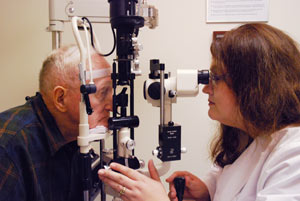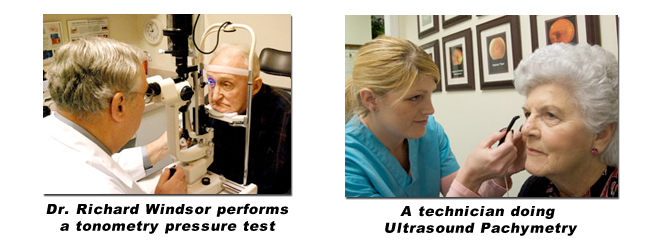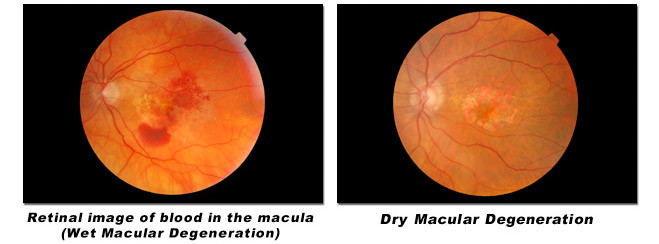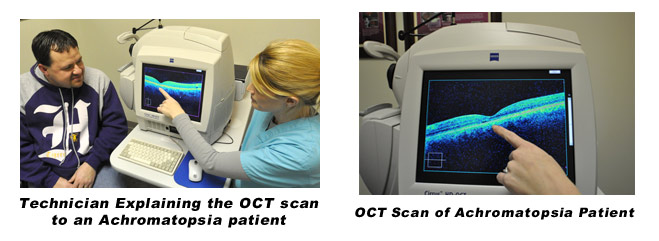Eye Health Evaluation
During the examination, the doctor will assess your current eye health status. The anterior segment of the eye will be examined with the biomicroscope for external disease such as infections, allergy and dry eye. A di lated examination of the retina will be performed with the binocular indirect and the biomicroscope.
lated examination of the retina will be performed with the binocular indirect and the biomicroscope.
The doctor will be looking to determine the cause of your vision loss if not already clearly defined and to determine if your condition is stable enough to consider bioptic driving. If the diagnosis is unclear, he/she will consult with the patient whether additional testing or referral to other specialists is required.
Tests will be performed for glaucoma. These include a tonometry pressure test, examination of the anterior chamber angle, the optic nerve and family history In some cases, additional visual fields, gonioscopy and ultrasound pachymetry may be required.

The doctor may order other diagnostic tests including retinal photography or Ocular Coherence Tomography (OCT).

Digital retinal imaging is helpful in documenting ocular disease and following some conditions over time. The example below shows the difference between wet age related macular degeneration on the left side and dry age related macular degeneration on the right. The wet age related macular degeneration shows blood in the macula while the image on the right shows only atrophic dry changes in the macula. The patient with wet macular degeneration would not be a candidate until and if the condition is treated and stabilized. The patient with dry macular degeneration might be a candidate.

OCT can provide valuable data in patients with Achromatopsia / Cone Dystrophies where it can show the loss of cone signal in the center of the macula. It is also helpful is detecting swelling of the macular region in diabetics (DME – Diabetic Macular Edema).

If the doctor detects active retinal pathology, he may request a consult with a retinal specialist to assure that your condition is fully treated. For example, in the past, active wet macular degeneration patients were rarely candidates for bioptic driving. However some patients with wet macular degeneration who have been diagnosed early, may now become candidates for bioptic driving or a restricted license after treatment and stabilization of their condition with Ant-VEGF injections such as Avastin and Lucentis by the retinal specialist.
Genetic testing is also becoming more important in diagnosing conditions that cause vision loss. Genetic testing can be helpful in some patients with retinal diseases. The key issue is to determine the diagnosis of your vision loss and determine the stability and to refer those patients that may benefit from additional diagnostic studies or treatment. Your cause of vision loss must be stable for you to proceed to bioptic driving.
